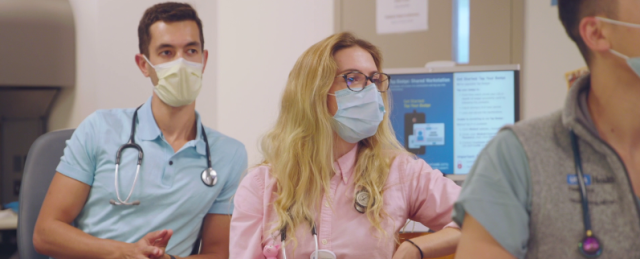Pediatrics
Program Aims

The UCLA Pediatric Residency Program aims to prepare pediatricians to practice medicine in the 21st century. With a supportive training environment, a variety of clinical experiences, and the promotion of individualized educational opportunities, our goal is the prepare residents to be the future leaders in child health. To accomplish this, we prioritize these four areas:
- Breadth and Variety of Educational Sites: Our multisite training structure (quaternary medical center, county facility, community based hospitals, and community clinics in areas of unmet need) allows trainees to care for patients in a variety of socioeconomic classes, cultural backgrounds, and pathologies. The program also focuses on cultural competency and understanding implicit bias. Resident recruitment also focuses on inclusion of trainees from many backgrounds and interests to improve peer education and inclusion.
- Individualized education: is based upon trainee mentorship and customizable curricula. Faculty mentors, representing an array of pediatrician careers, offer longitudinal guidance from before the start of residency to after graduation. Mentorship includes curriculum recommendations, career guidance, and promotion of work-life balance. The program's 2-week block and longitudinal elective experiences allow for 14-15 different electives/modules per resident for the ~7-8 months of total elective time during residency training.
- Commitment to the Underserved: The program has a strategic commitment to the underserved as exemplified by the ethical exchange global health program, the long-established public health/primary care track, a hands-on community advocacy curriculum, and clinical experiences that serve predominantly Medicaid and under-resourced patients. As a result, 30-40% of graduates subsequently work in underserved areas of unmet need.
- Dedication to Resident Well-being: The program continually aims to promote resident well-being by providing regular funded resident gatherings, clinical schedules focused on work-life balance and flexibility, and multiple venues that help engage residents in problem-solving various issues that arise in resident training.
- Support for scholarly activity and research investigation: The program is dedicated to supporting your scholarly pursuits and endeavors. Dr. Kara Calkins and Dr. Mark Hanudel are appointed resident research liaisons and can assist residents in finding a research mentor and project.